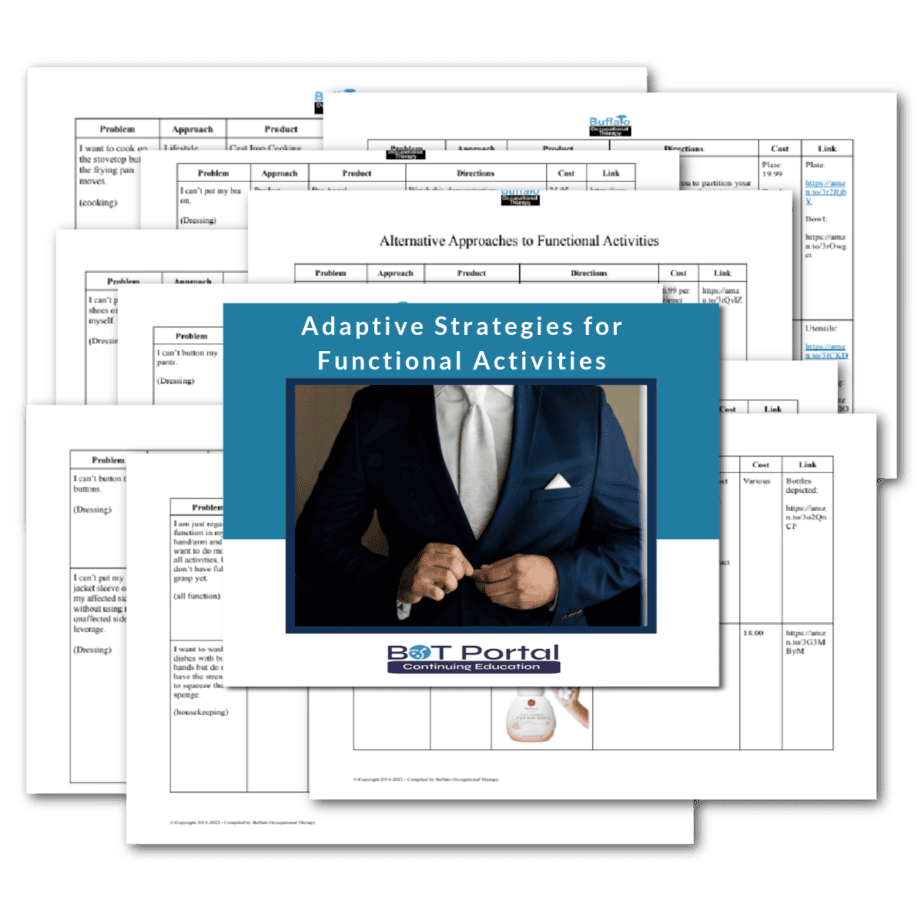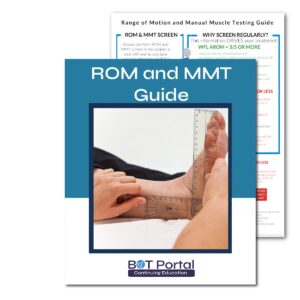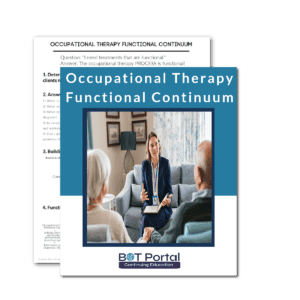Description
Adaptive Strategies for Functional Activities
Adaptive Strategies for Functional Activities in Rehab
Adaptive strategies for functional activities are invaluable in rehabilitation because they empower individuals to overcome challenges, maximize independence, and achieve their goals for daily living. Functional activities encompass a wide range of tasks essential for independent living, such as dressing, bathing, cooking, and household chores. However, after injury, illness, or disability, individuals may encounter barriers that hinder their ability to perform these activities effectively. Adaptive strategies offer innovative solutions to overcome these obstacles and enhance quality of life.
One of the primary reasons why adaptive strategies are important in rehabilitation is their role in promoting independence and participation in daily activities. When faced with physical limitations or impairments, individuals may struggle to complete tasks that were once routine. Adaptive strategies provide alternative approaches or tools that enable individuals to perform these activities more easily and efficiently. For example, someone with arthritis may use adaptive kitchen utensils with ergonomic handles to make cooking and meal preparation less strenuous on their joints.
Moreover, adaptive strategies foster a sense of empowerment and autonomy by allowing individuals to take control of their environment and routines. Rather than relying solely on assistance from others, individuals can use adaptive techniques to overcome challenges and maintain a greater degree of independence in their daily lives. This sense of self-reliance can boost confidence, self-esteem, and overall well-being during the rehabilitation process.
Additionally, adaptive strategies promote safety and reduce the risk of injury when performing functional activities. By implementing modifications or using assistive devices, individuals can minimize the potential for accidents or falls, especially in environments where hazards may be present. For instance, installing grab bars in the bathroom or using a shower chair can enhance safety and stability while bathing.
Furthermore, adaptive strategies can be tailored to meet the specific needs and preferences of each individual. Rehabilitation professionals work closely with patients to identify barriers to participation in daily activities and develop customized solutions that address these challenges effectively. Whether it’s modifying the layout of a home, recommending assistive devices, or teaching alternative techniques, adaptive strategies can be personalized to enhance functionality and meet rehabilitation goals.



